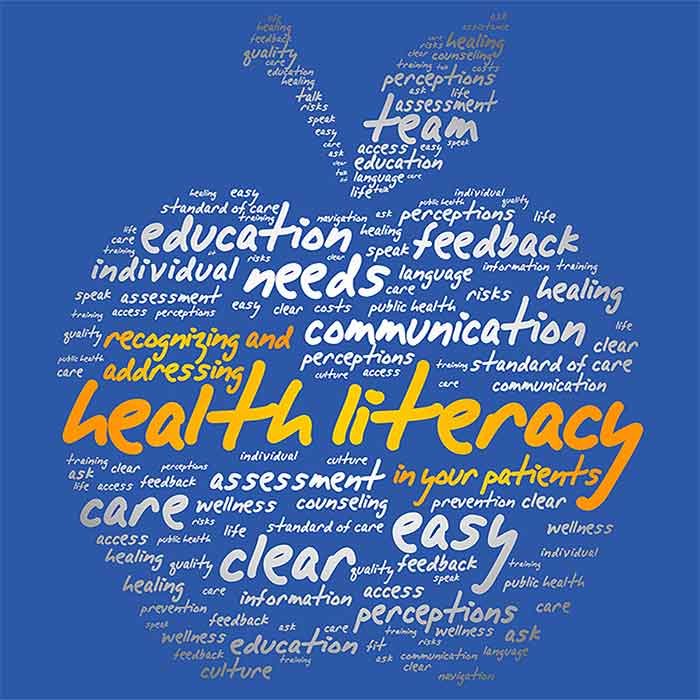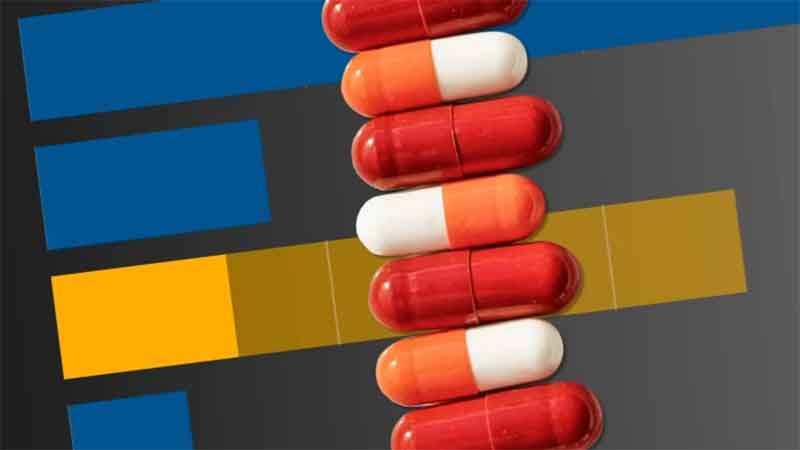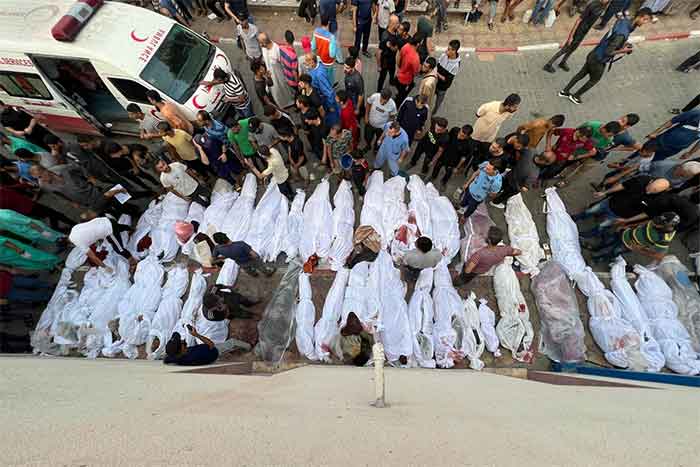by Dr. Arathi P Rao, Dr Parul Malik, Dr. Anil K Bhat and Dr. Kesavan Rajasekharan Nayar

The concept of “Health Literacy” (HL) is gaining importance, more so in the COVID-19 era and is now being frequently applied in various studies. The levels of HL are being assessed for patients, their caregivers and the population in general (students, teachers etc.). There are also various studies available which look at associations between health literacy and management of various diseases (both communicable and non-communicable). One of the groups, on which evidence of health literacy levels is still scarce, are the healthcare professionals, themselves.
Health literacy empowers an individual to take appropriate decisions regarding self-health and the health of others. It has been recommended as one of the goals for public health in the present century.[1] Studies have shown that levels of health literacy of the population reflect various aspects of health and disease management at a personal level especially in the low- and middle-income countries.
Healthcare workforce in India is constituted by Doctors (Allopathic, Ayurvedic, Homeopathic or Unani), Nurses, Midwives, Community Health Workers (CHWs), Dentists, Pharmacists, Ancillary Health Professionals, and Traditional/Faith Healers. Medical Students- at undergraduate, post graduate or higher levels also constitute an important cohort in the health workforce. The focus has now shifted to assess the health literacy levels of the future health work force across medical college institutions as they play a major role in enhancing the health literacy of their patients.[2] Recently, some studies have been conducted, which have tried to assess HL of students from medicine as well as allied health sciences like physiotherapy, nursing and other allied health professions, as they are required to work in teams to solve the health problems of future generations. [3]
Healthcare providers always need to practice self-care as well as strive for strengthening patients’ autonomy, participation, and self-management abilities. [4] In certain situations, for example, the recent outbreak of the COVID-19 pandemic, public health measures were implemented in all countries and it is being tried to safeguard the general public. Also, the pandemic named the doctors, nurses, respiratory therapists, community health workers and everyone involved in containing the pandemic as “COVID warriors” to depict the team effort. These healthcare professionals, therefore become one of the frontline workers, who need to continue providing care and this is likely to affect their mental health, as well as cause many psychological health problems. [5]
A study among medical students at eight universities across Vietnam tried to find the association of fear of COVID-19 scale (FCoV-19S) scores with health literacy (HL). [4] The results of the study stated that health literacy (recognized here as a critical skill in evaluating online health information) had a protective effect on fear. Therefore, enhancing medical students’ health literacy skills could help to reduce fear and improve their health, as well as prepare them for better delivery of services.
The above study highlights the importance of the need for healthcare workers to gain adequate and reliable health information to be able to analyse the credibility of evidence and to be able to better protect their own as well as the patients’ health. Evidence suggests that higher level of health literacy can help to protect people’s mental health during the COVID-19 pandemic. [6] This could mean that enhancing the health literacy of healthcare workforce, deployed at various levels, can be an important step in ensuring their psychological well-being and in turn, have better health outcomes for the patients they treat.
It also becomes highly essential that these warriors in the frontline be health literate as they are likely to face individual variations in disease manifestations, address people’s queries pertaining to the pandemic, be questioned about the relevance of the pertinent tests conducted among the public and use personal protection measures for themselves as well as explain the need of the same to the diseased/non-diseased people they deal with daily. Moreover, the responsibility of continuous reporting has its own psychological effect on the COVID warriors every day.
Health literacy can therefore, help to address the weariness among them to work on a day to day basis as the pandemic is here to stay for some more time. Augmenting their HL can also motivate them by answering several questions that arise with passage of time, and which their hectic schedules and stressful environments may not leave them with enough time, to find answers to. With the advent of COVID vaccines and prioritisation of sections of population for delivery of vaccines by the government, more questions can arise from the community to the frontline workforce. Enhanced health literacy will enable these COVID warriors to address these situations in the future developments of the pandemic situation. This can be done by conducting small training sessions by experts in the field for these workers on a rotational basis, which will help by providing a break from their routine and perhaps inspire them to work with more enthusiasm.
Dr. Arathi P Rao is the Coordinator of MPH Programme and the Head of Manipal Health Literacy Unit at the Prasanna School of Public Health, Manipal Academy of Higher Education (MAHE), Manipal, India.
Dr. Parul Malik is a medical doctor with a Master of Public Health (Global Health) degree from Prasanna School of Public Health, Manipal Academy of Higher Education (MAHE), Manipal, India.
Dr. Anil K Bhat is the Associate Dean of Kasturba Medical College, Manipal Academy of Higher Education (MAHE), Manipal, India.
Dr. K. Rajasekharan Nayar is affiliated to Global Institute of Public Health and Santhigiri Research Foundation, Thiruvananthapuram, Kerala.
References
- Nutbeam D. Health literacy as a public health goal: a challenge for contemporary health education and communication strategies into the 21st century. Health promotion international. 2000 Sep 1;15(3):259-67.
- Budhathoki SS, Pokharel PK, Jha N, Moselen E, Dixon R, Bhattachan M, Osborne RH. Health literacy of future healthcare professionals: a cross-sectional study among health sciences students in Nepal. International health. 2019 Jan 1;11(1):15-23.
- Rao AP, Kumar S, Soundharya M, Sophia M, Sikaria SK, Lobo K, Shireesha Y. Assessing Health Literacy among Health Science Students in a Coastal Town of Southern India–A Cross-Sectional Study. Indian Journal of Public Health Research & Development. 2020 Jun 25;11(6):90-4.
- Nguyen HT, Do BN, Pham KM, Kim GB, Dam HT, Nguyen TT, Nguyen TT, Nguyen YH, Sørensen K, Pleasant A, Duong TV. Fear of COVID-19 Scale—Associations of Its Scores with Health Literacy and Health-Related Behaviors among Medical Students. International Journal of Environmental Research and Public Health. 2020 Jan;17(11):4164.
- Wu W, Zhang Y, Wang P, Zhang L, Wang G, Lei G, Xiao Q, Cao X, Bian Y, Xie S, Huang F. Psychological stress of medical staffs during outbreak of COVID‐19 and adjustment strategy. Journal of Medical Virology. 2020 Apr 21.
- Nguyen HC, Nguyen MH, Do BN, Tran CQ, Nguyen TT, Pham KM, Pham LV, Tran KV, Duong TT, Tran TV, Duong TH. People with suspected COVID-19 symptoms were more likely depressed and had lower health-related quality of life: The potential benefit of health literacy. Journal of clinical medicine. 2020 Apr;9(4):965.
SIGN UP FOR COUNTERCURRENTS DAILY NEWSLETTER















































